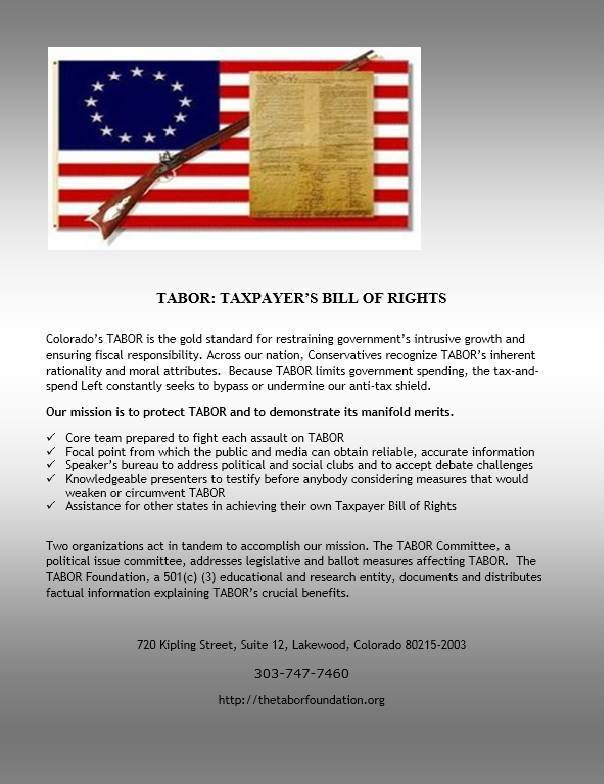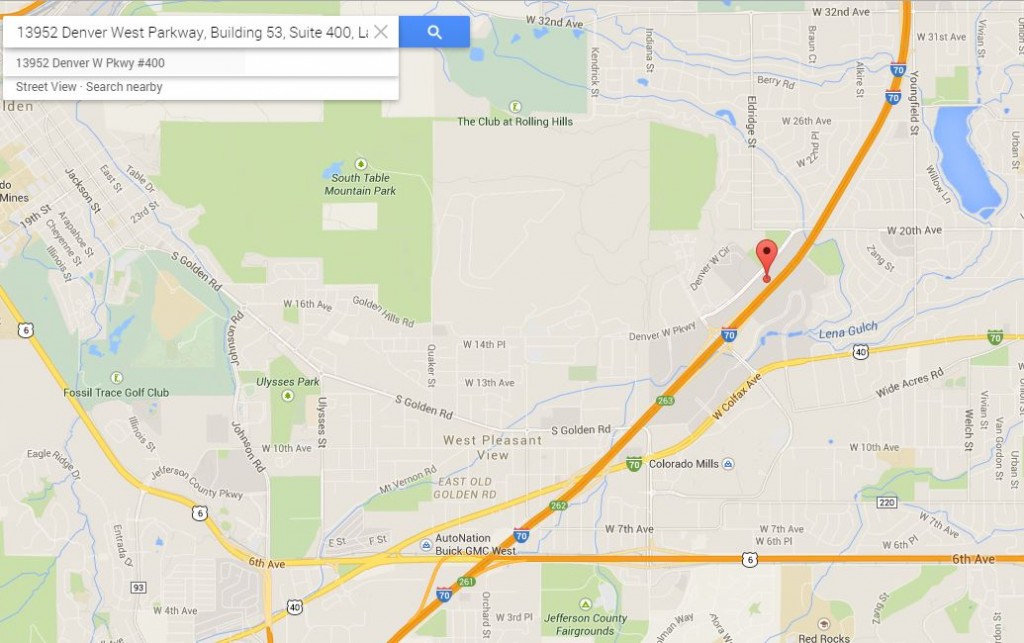Will Colorado Taxpayers Actually Receive a Marijuana Refund?

In case you haven’t heard already, Colorado has been making a killing off of legal marijuana. The substance — which we’ve come to know by many names like reefer, pot, bud, herb, and gonja just to name a few — has brought in millions for the Rocky Mountain state. Colorado’s marijuana tax revenue data was just released for the month of September.
Looking at this tax data, it appears as though the trend-setting state didn’t sell as much retail marijuana as it did during the month prior. But, in spite of the sales slowdown, the state is still earning enough cash from marijuana to have its citizens profit. Under the Taxpayer Bill of Rights (TABOR), Colorado citizens may even receive a ‘refund’ because marijuana revenues were higher than anticipated.
September’s taxes and revenue
During September, Colorado brought in $2.94 million from sales taxes on recreational marijuana alone. Considering a 10% tax rate, this means sales during the month of September were just under $30 million, which is a cool $3 million less than during the month of August when the state brought in $3.31 million in recreational marijuana sales tax revenue.
On top of this cash, Colorado is still earning huge tax dollars from medical marijuana sales taxes (at 2.9%) which have brought the state over $900,000 during the month of September alone. It also earns money from the additional 2.9% tax it imposes on retail pot, and the 15% excise tax that’s imposed on suppliers, manufacturers, etc.
What is TABOR and is it unique to Colorado?
The TABOR is designed to be a kind of like a system of checks and balances. In Colorado, the TABOR limits the amount of revenue growth to the sum of the state’s population growth plus any increase in the rate of inflation. This means that if the population were to grow by 2% and inflation were to grow by 2%, available state revenue can increase by no more than 4%, unless voters approve an increase.
According to the Colorado Department of Revenue, “Under TABOR, state and local governments cannot raise tax rates without voter approval and cannot spend revenues collected under existing tax rates if revenues grow faster than the rate of inflation and population growth, without voter approval.”
Other states have brought similar TABOR legislation to the table in the past, but Colorado is the only state that actually has such a policy in action.
Colorado Taxpayers In Line To Receive Refund
Two tax refunds possible in Colorado. 9NEWS at 5 p.m. 11/12/14.
NVER—Colorado taxpayers could be in for a pair of refunds from the state, depending on how lawmakers decide to handle two issues caused by the state’s taxpayer bill of rights (TABOR).
That larger of the two refunds would be because of tax revenue forecast to come in $136.6 million more than the limit set by TABOR next fiscal year, which would amount to $41.80 per adult in Colorado, using population figures from the US Census Bureau.
A smaller refund is expected to be triggered in this current year’s budget, tied to legal marijuana sales.
The state may have to refund most of the marijuana taxes it collected in the first full fiscal year of legal sales or recreational pot, an estimated $30.5 million.
That refund would amount to $7.63 per adult in Colorado.
Don’t go making plans to spend your refund just yet.
Lawmakers can always ask voters to let the state keep that money.
While Gov. John Hickenlooper (D-Colorado) has not publicly stated what he thinks the legislature should do about the refunds, there are signs that lawmakers may ask you to at least part with your marijuana refund.
MARIJUANA TAX
A refund on marijuana taxes would not happen because pot sales brought in more money than expected to state government.
In fact, the taxes raised less money than the state predicted.
However, because the state’s official voter guide for Proposition AA in 2013 underestimated the total overall tax collections that would be made by Colorado in 2014-15, TABOR requires the new tax to be refunded, a requirement only imposed in the first full fiscal year of a new tax.
“Because of a quirk in the TABOR amendment, we may have to refund all of the first year’s [marijuana] taxes,” said Sen. Pat Steadman, a Democrat who sits on the joint budget committee. “I’m pretty clear that that’s not what voters had in mind.”
Lawmakers do have the option of asking voters to allow the state to keep the money in excess of what TABOR allows.
While Republicans generally favor refunds in these cases, they may be inclined to make an exception this time because the voters directly approved the new taxes on pot.
“I think that was probably the intent of the voters,” said Sen. Kent Lambert, the Republican chairman of the budget committee. “I think that’s probably the way we’ll end up, probably going to the ballot, but I think that’s going to be a decision of the whole general assembly.”
TABOR LIMIT
The larger of the two refunds exposes the broader philosophical differences between Democrats and Republicans about taxation and the role of government.
This refund would be triggered purely by a healing economy, not an entanglement with a new voter-enacted tax.
Most Republicans are happy to cut you your check, in keeping with the spirit of TABOR.
“This is the taxpayer’s money,” Lambert told 9NEWS. “We have some limitations on the growth of government through the taxpayer’s bill of rights that I think most people in my caucus respect.”
Conversely, most Democrats would rather ask voters to let the state keep the money.
They’d prefer to use this money to pay for improvements to highways and bridges, or beef up school funding to pre-recession levels.
“Before we start making refunds to people we ought to ask should we fix the roof on the barn in the good year instead of just giving it all away,” Steadman said.
Now that Republicans control the state Senate, they are in the stronger position. If they don’t cut a deal, the refunds will happen automatically.
Lambert floated a more ambitious idea: lower tax rates to avoid triggering the refund.
With Democrats still holding a House majority, that’s an idea that’s unlikely to be enacted, though there could be support for tax credits that could reduce the overall size of any refund.
If a refund does move forward, lawmakers do have sway over how the money is distributed to taxpayers. People at different income levels could receive different amounts.
(KUSA-TV © 2014 Multimedia Holdings Corporation)
http://www.9news.com/story/news/local/2014/11/12/two-tax-refunds-possible-in-colorado/18942877/
2014 Annual Meeting
Look to Ref C’s success for Colorado’s fiscal future
|
http://www.denverpost.com/editorials/ci_26892088/look-ref-cs-success-colorados-fiscal-future
Colorado Residents Looking at Pot Tax Rebate
 Last Monday, Colorado Gov. John Hickenlooper unveiled the state’s $26.8 billion proposed budget for next fiscal year. The budget includes $167.2 million in tax rebates for Colorado taxpayers, including $30.5 million in rebates due to total state revenue that was higher than predicted. Under the Colorado Taxpayer’s Bill of Rights (TABOR) the state must either refund the excess amount above the estimate,or add a measure to a future ballot asking the voters to let the state keep and spend the surplus.
Last Monday, Colorado Gov. John Hickenlooper unveiled the state’s $26.8 billion proposed budget for next fiscal year. The budget includes $167.2 million in tax rebates for Colorado taxpayers, including $30.5 million in rebates due to total state revenue that was higher than predicted. Under the Colorado Taxpayer’s Bill of Rights (TABOR) the state must either refund the excess amount above the estimate,or add a measure to a future ballot asking the voters to let the state keep and spend the surplus.
The rebates are mandated by TABOR, because the revenue from marijuana sales is different than projections included in the election book for the 2013 Proposition AA. Under TABOR, since the estimate was off, the state has to either refund the excess cash or go to voters to ask if the state can keep it.
The budget proposal was announced one day before the Nov. 4 election that gave Hickenlooper another term. The spending plan includes a 7 percent increase from the current year’s budget, representing $1.7 billion in new spending of state and federal money. $908 million in state spending includes $107 million in additional funds for higher education, $103 million for road projects and a 2 percent pay hike for many state employees.
Colorado’s economy is improving, but much of the new money is due to tax collections exceeding the state’s revenue cap, triggering rebates under TABOR for the first time in 15 years. The provision requires refunds if the revenue is greater than the rate of population growth and inflation. Unless, that is, the voters decide to return the money.
Hickenlooper’s budget directs $167.2 million of the TABOR rebate for fiscal year 2015-16 toward a tax credit for low income workers, along with sales tax refunds. He did not address exactly how to rebate the $30.5 million portion for recreational pot taxes, that decision being left to state lawmakers.
The rebate issue became a campaign issue last month when the governor was noncommittal on whether he would endorse a tax rebate, or if he would ask voters for permission to spend it. At a gubernatorial debate Oct. 24 he did commit to a rebate.
Vice Chairman of the Joint Budget Committee Sen. Pat Steadman said the overage is not happening because the taxes are exceeding the estimates, but rather because the economy is growing. Hickenlooper stated that “Colorado’s economic activity continues to outperform the national expansion,” and said looking ahead, the most likely scenario is for that momentum to continue.
Lawmakers have the option to lower excise and sales tax rates on recreational pot to bring the revenue in line with projections, but that would most likely impact $40 in annual excise tax revenue that has been allocated to school construction. Rep. Cheri Gerou, a member of the Joint Budget Committee, said lowering the sales tax rate would mean the state could not take care of K-12 education under BEST, the Building Excellent Schools Today program.
So much of the marijuana revenue is allocated for school construction and reimbursing counties for regulation expenses that it is possible that the cannabis refund would have to come out of the state’s general fund. It is uncertain how the pot tax rebate will be handled, whether it will go to all Colorado taxpayers or only to those who bought recreational marijuana. Gerou said that despite the higher-than-projected revenue, legalized recreational marijuana could actually cost the state money in this first year.
By Beth A. Balen
Read more at http://guardianlv.com/2014/11/colorado-residents-looking-at-pot-tax-rebate/#fgIF8cuuEo3AYXHk.99
Support Your TABOR Team
Friends of freedom,
As the TABOR Committee approaches its annual business meeting on Saturday, November 15th, we thought to invite you to join our team.
If you are not currently engaged in an effort to advance liberty, please consider that you could make a difference with one to two hours per week of dedicated volunteering. You likely would benefit too, perhaps building a resume’, gaining insights unavailable from the sidelines, and fulfilling your interest for successful activism and leadership.
The TABOR Committee and its sister organization, the TABOR Foundation, have been punching far above our weight, including initiating lawsuits against the Bridge Enterprise scheme and against the new RTD and Scientific and Cultural Facilities District taxes. We filed an amicus brief in the Lobato lawsuit and acted in the federal lawsuit (Kerr vs. Hickenlooper) as the lead amicus in alliance with the NFIB’s national office legal team – the same outfit that filed the lawsuit against ObamaCare which ended with the Roberts’ decision. (The Kerr lawsuit avers TABOR unconstitutional under the US constitution). We also have taken tangential roles in the Aspen bag fee lawsuit and the lawsuit pertaining to the TABOR vote on the Gaylord Convention Center. Our other ongoing volunteer work includes
– development of histories of TABOR campaigns leading to passage,
– producing a TABOR 101 introductory video,
– research and authoring a legal history of the various TABOR decisions over the decades,
– providing articles to the media,
– running a web site,
– presenting a break-out session at the Western Conservative Summit (completed – 2014).
We would like to build on that. A deeper bench is needed, with more interested people involved so that languishing projects move forward.
My request of you is to become involved in policy & politics to preserve and advance the Taxpayer’s Bill of Rights. We need more help:
The committee that should be sending out a speaker’s bureau is moribund, because our Outreach Director’s professional life has taken a new direction. We need a small team with the skills and attitude to schedule the speakers bureau, organize the speakers’ training, coordinate feedback and lessons learned. If Bell Policy/Colorado Fiscal Institute soon launch a renewed attack on TABOR as expected, we will discover the libertarian/conservative movement is already behind.
We should recruit more support and organizing help in producing the TABOR 101 videos.
A major objective within our mission statement has gone unaddressed – the offer to support other states’ efforts to pass their own TABORs. We have not followed up adequately on expressions of recent interest from Kansas, Florida and Arizona. A leader with diplomacy skills and dogged determination would be a wonderful addition.
Citizens in Charge/Paul Jacob has planned to put national attention to TABOR during the coming spring with a series of different activities and a symposium. We don’t currently have the volunteer time available to support his plan, coordinate and collaborate with him, and to create successful events.
If you are interested, please contact our Executive Director, Bob Foland, at bobfoland@iraspecialists.com or me at constecon@hotmail.com or telephone me at 303-233-7731.
Your response and support will be greatly appreciated.
Thank you,
Penn Pfiffner
Hickenlooper’s budget plan endorses tax rebates, new state spending
|
http://www.denverpost.com/news/ci_26856988/hickenloopers-budget-plan-endorses-tax-rebates-new-state
Colorado Taxpayers May See First TABOR Refunds in 15 Years
Colorado Goes to the Supreme Court to Defend TABOR
Three years ago, a group of primarily government plaintiffs sued in federal district court to void Colorado’s Taxpayers Bill of Rights (TABOR). TABOR allows the people, not just the legislature, to vote on most tax increases, most debt increases, and some spending hikes.
http://blog.tenthamendmentcenter.com/2014/10/colorado-goes-to-the-supreme-court-to-defend-tabor/



